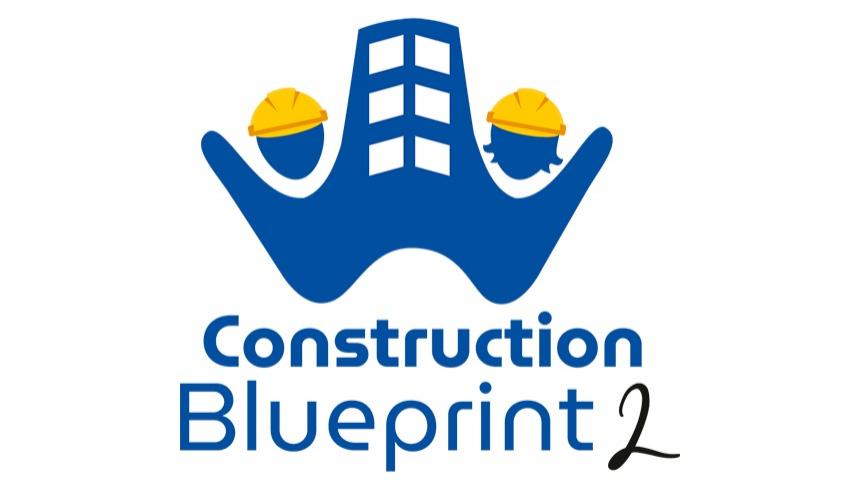Construction Blueprint 2 (2025-2028) Erasmus+ programme
Strategic focus on Professional Skills in the construction industry.
Designation: Construction Blueprint 2. Strategic Alliance for skills development under the Pact for Skills in the Construction sector.
Project: Erasmus+ Programme. Alliances for Innovation. Lot 2. Alliances for sectoral cooperation on skills (implementing the 'Blueprint').
Identification of the project: 101187470
Duration: 48 months (4 years), since January 2025 until December 2028.
Budget: 4,000,000 €.
Coordinator of the project: Fundación Laboral de la Construcción (Spain).
Partners:
- Europe: European Construction Industry Federation (FIEC), European Federation of Building and Woodworkers (EFBWW) and European Builders Confederation (EBC)
- Spain: Fundación Laboral de la Construcción (coordinator), Confederación Nacional de la Construcción (CNC), Comisiones Obreras del Hábitat, Federación de Industria, Construcción y Agro de la UGT and Universidad de Valencia-IRTIC.
- Belgium: Centre IFAPME Liège-Huy-Verviers
- Bulgaria: CleanTech and CQ-EAD
- Greece: Panhellenic Association of Engineers Contractors of Public Works (Pedmede)
- Germany: Berufsförderungswerk der Bauindustrie NRW gGmbH (BFW-NRW)
- Ireland: Technological University of the Shannon: Midlands Midwest (TUS)
- Italy: Ente per la Formazione e l'addestramento professionale nell'edilizia (Formedil) and Associazione Nazionale Costruttori Edili (Ance)
- Luxemburg: Institut de Formation Sectoriel du Bâtiment S.A. (IFSB)
- Romania: FPSC-Federatia Patronatelor Societatilor din Constructii din Romania and German-Romanian Foundation Timisoara
- Slovenia: Chamber of Commerce and Industry of Slovenia (CCIS)
Website: Coming soon
Social networks of the Construction Blueprint:
The main objective of 'Construction Blueprint 2' is to create new strategic approaches and cooperation for specific skills development solutions, in the short and the medium term, in areas contributing to the achievements of the principles composing the Pact for Skills in Construction, by means of designing and developing core curricula for the construction industry including VET and HE and delivering training actions to cover those skills that these curricula address, among other activities. This Pact aims to help public and private organisations to upgrade their skills so that they can move forward in the green and digital transitions.
To address the challenges of 'Construction Blueprint 2', a consortium made up of 20 organisations (whose profile correspond to training providers (VET centres and Universities), sectoral representatives, social partners, innovation centres and technological developers), from 10 European countries (Belgium, Bulgaria, Germany, Greece, Ireland, Italy, Luxembourg, Romania, Slovenia and Spain) has been created to develop activities and tasks to achieve aims and goals under the green and digital transition in the construction sector, to anticipate the emerging skills and the urgent training needs of workers.
Main results
- Sectoral skills intelligence, including the updated Construction Skills Observatory,
- Methodology and tools for the monitoring of the implementation of the Pact for Skills and its promotion to get new signatories
- Skills Strategy for the Construction Ecosystem (Roadmap and Action plan).
- Web App for the integration of the available up- and re-skilling resources in the construction sector
- Design of modular training curricula for VET y HE. Training contents for the curricula (add soft skill, entrepreneurial skills, technological skills…).
- Innovative training programme to upgrade CVET skills.
- Digital matrix of emerging skills for the construction industry.
- Proposal of a micro-competence certification approach.
- Sustainability Plan to ensure continuity of results after the end of the project.
- Dissemination actions, attractiveness campaigns, exchange of relevant experiences.

Funded by the European Union. Views and opinions expressed are however those of the author(s) only and do not necessarily reflect those of the European Union or the European Education and Culture Executive Agency (EACEA). Neither the European Union nor EACEA can be held responsible for them.













